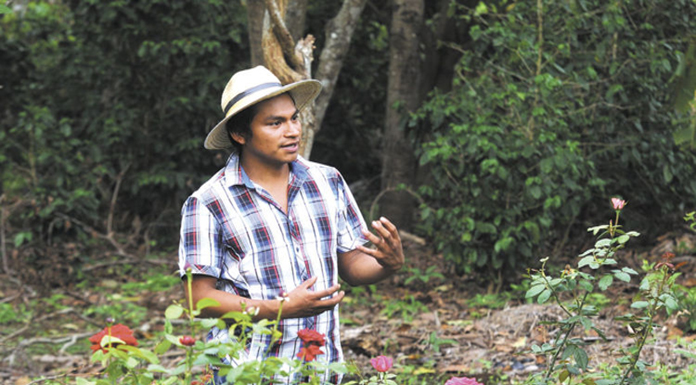When the COVID the crisis began, the organic garden and agriculture business Vivero Nambume in Carazo, Nicaragua saw their revenues drop to zero as customers could no longer visit the store. The owners contacted their support network at Agora Partnerships, which immediately helped develop a process to convert their sales model to deliveries and a social media ad campaign to inform potential customers. The first day this strategy was in place, the company saw $250 in sales, which may seem like a small amount, but which allowed the company to keep their operations running, make their payroll – and keep moving forward towards potential investment-readiness.
“Entrepreneurship, and especially entrepreneurship in emerging markets, is characterized by a massive amount of uncertainty,” says Ben Powell of Agora Partnerships, which supports entrepreneurs in Latin America. “Capacity Development Organizations proactively provide entrepreneurs with the information, networks, and emotional support they need to navigate this uncertainty. This role is not always very well understood, but it is absolutely critical and why the companies we support tend to raise more money, grow more quickly, and make more impact.”
Emerging market fund managers scramble to keep enterprises and entrepreneurs afloat
For years, impact investors have cited a lack of a strong pipeline of investable opportunities, in particular in emerging markets, as a barrier to accelerating the velocity of capital deployed in the sector. In response, over the past decade a wide variety of organizations have begun providing technical assistance to help make growth-oriented social enterprises investment-ready and are now are serving a broader role as critical links between investors and local entrepreneurs. Many of these technical assistance providers, or TA providers, are members of the Aspen Network of Development Entrepreneurs (ANDE), which provides a platform for Small and Growing Business (SGB) support organizations to connect, learn, share, and expand their work.
The impact of the Covid crisis on small and growing businesses around the world is clear, with ANDE members estimating that over 40 percent of the enterprises they support facing a high likelihood of near-term failure due to the crisis. But while capital providers are beginning to step up and provide a variety of new financing facilities to address the flexible capital needs of social entrepreneurs, technical assistance providers have few or no new options for support. A recent survey of ANDE members found that nearly one-quarter of capacity development organizations (the category most directly associated with providing TA), report a “high” or “existential” organizational risk due to Covid-19, and more than one-third have already downsized – and this data was as of the end of March, when lockdowns were only just beginning.
There are several reasons for this disproportionate impact on TA providers headquartered in emerging markets. First, they often have smaller and more local networks of funders. They also tend to have a business model that relies heavily on fees for services from SGBs (which can no longer pay due to the crisis). Moreover, many of these service providers depend on contracts for specific workshops or trainings such as entrepreneurship bootcamps that are no longer taking place due to social distancing and travel restrictions. More broadly, many funders are also responding to grant requests more slowly and generally hesitant to approve new funding without being able to do in-person due diligence.
If these TA providers are left without a lifeline, then the nascent entrepreneurs that represent the future of high-potential deals for impact investors are less likely to survive the crisis and emerge poised for growth. At the end of the day, if these TA providers fail then entrepreneurs will be left without support that is critical to their business’s survival. This is borne out by experiences in previous crises: during the 2018-2019 conflict in Nicaragua, nearly all of the participants in Technoserve’s Impulsa tu Empresa program survived, while nearly half of small businesses in the country failed.
So what can impact investors do to ensure that TA providers are able to weather the crisis and help keep the deal flow of the future alive? Our experience with a range of programs that connect TA with investment suggests three actions can work:
Blend capital with support for technical assistance. There are many examples of programs that bring together return-seeking impact investment and grant-supported technical assistance – the USAID PACE initiative, for example, has supported these sorts of activities since 2013. As investors set up new relief and recovery mechanisms for their portfolio, they should reach out to grantmakers to develop partnerships that pair this financing with direct support for TA providers who can help ensure the capital is deployed effectively.
Use patient capital to support long-term partnerships with TA providers. While investor funding for TA providers is usually structured as very targeted short-term support or success payments, the magnitude of the current crisis demands thinking creatively about longer-term and more flexible partnership structures. A relatively small chunk of an overall portfolio dedicated to funding TA today could have a large long-term payoff in a robust deal pipeline among the subset of businesses that are well-positioned during the crisis (such as those in healthcare or providing digital tools) as well as the larger set that will be poised for growth coming out of the crisis.
Advocate for all actors in the entrepreneurship ecosystem. Capital has the advantage of often being the loudest voice in the room, and that voice can be leveraged on behalf of the entire entrepreneurship support ecosystem. TA providers — in particular those in emerging markets – are often left out of high-level conversations. Impact investors that have the ear of policymakers and donors can make the case for providing relief and support to capacity development organizations.
A huge number SGBs will not survive the Covid-19 crisis. But many will needlessly fail without access to the mentorship, networks, and other tools and services that SGB-support organizations provide.
“The entrepreneurs we support are the people who will ultimately lead us out of this crisis and they have been calling and Whatsapp-ing us a lot more since everything started,” says Agora’s Ben Powell. “Our team is pretty motivated right now because we have seen first-hand how stress can activate creativity and focus people. At the same time, I’m also extremely concerned that the almost 20 years of investment we have made in helping businesses in Latin America grow is in danger of being completely eviscerated.”
Matthew Guttentag is the research and impact director at the Aspen Network of Development Entrepreneurs.
Mark Pedersen is a project manager at Dalberg Advisors where he focuses predominately on SGBs, impact investing, and financial inclusion.











